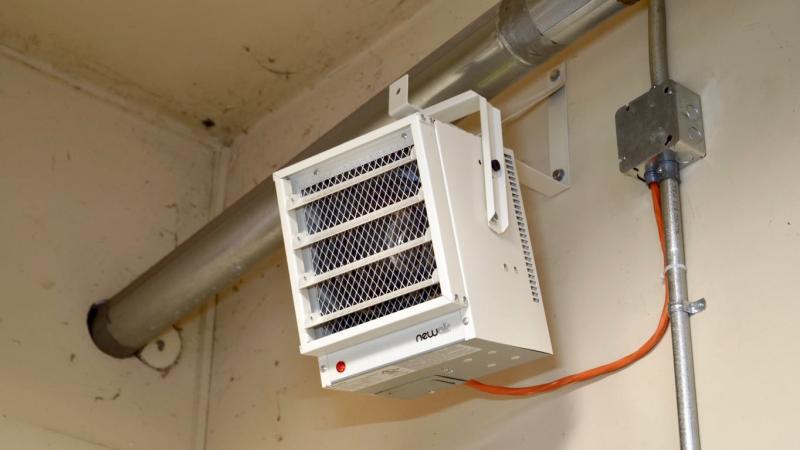The winter heating season presents safety concerns with the potential for fires, carbon-monoxide poisoning, heating unit failures, and even portable generator hazards. The National Fire Protection Association reports that the majority of fires occur during the heating months of December, January and February. Heating equipment is the leading cause of fire deaths.
hazards. The National Fire Protection Association reports that the majority of fires occur during the heating months of December, January and February. Heating equipment is the leading cause of fire deaths.
Fuel-burning furnace/boiler units have the potential to collect toxic carbon monoxide gas within a building if not properly vented to the outside. Carbon monoxide detectors should be installed and maintained in areas around the heating systems to alert occupants of the presence of CO gas. Applicable staff should be trained to evacuate the premises upon emergency conditions.
Municipal facilities can have a variety of heating units. These include boilers, forced hot air furnaces, and even wood stoves. Several types of heating fuels such as natural gas, fuel oil, propane, wood and electric are utilized. It is important that heating sources are functioning properly during the heating season. Inspect furnace units and replace filters as needed.
Boiler units over 100,000 Btu are required to undergo a certified boiler inspection every two years. This should be completed by a licensed boiler inspector and tagged with the latest inspection. All chimney units should be serviced and cleaned prior to each heating season. Fuel sources need to be inspected for leaks and confirmation that piping is in good condition. Failures in the units or fuel source should be repaired prior to any future use.
To help prevent fires, all combustible materials should be kept a minimum of 3-feet away from heating units as well as their output locations. We have noticed some highway departments will dry clothing near furnace and stove units. This procedure could cause a fire, so these garments must be kept a minimum of 3 feet away from the heater and organized to not create overcrowding or degrade housekeeping. Covering a heating vent or duct not only compromises heat flow, but creates a fire potential and reduces the effectiveness of the heating unit. Portable heating units should not be allowed in office environments. They tend to be left on, placed close to combustible materials (under desks, behind cabinets etc.,) and cause burn injuries to skin when contacted. Portable heaters have a greater tendency to cause fires when used in this manner and they may tip over.
This winter heating season, provide time to inspect and service your heating units to ensure their proper and safe operation. Improve housekeeping around your heating units. Wood stoves need to be monitored during their use by watching for ash build-up and sparks. It is also important to watch out for employee injuries from lifting and carrying wood to the wood stove. Slips and falls, along with potential for back injuries can occur during this process.
Contact your Comp Alliance loss control professional or the Director of Loss Control, Robert Blaisdell at (518) 330-8591 or This email address is being protected from spambots. You need JavaScript enabled to view it. for more details on our safety training offerings.

